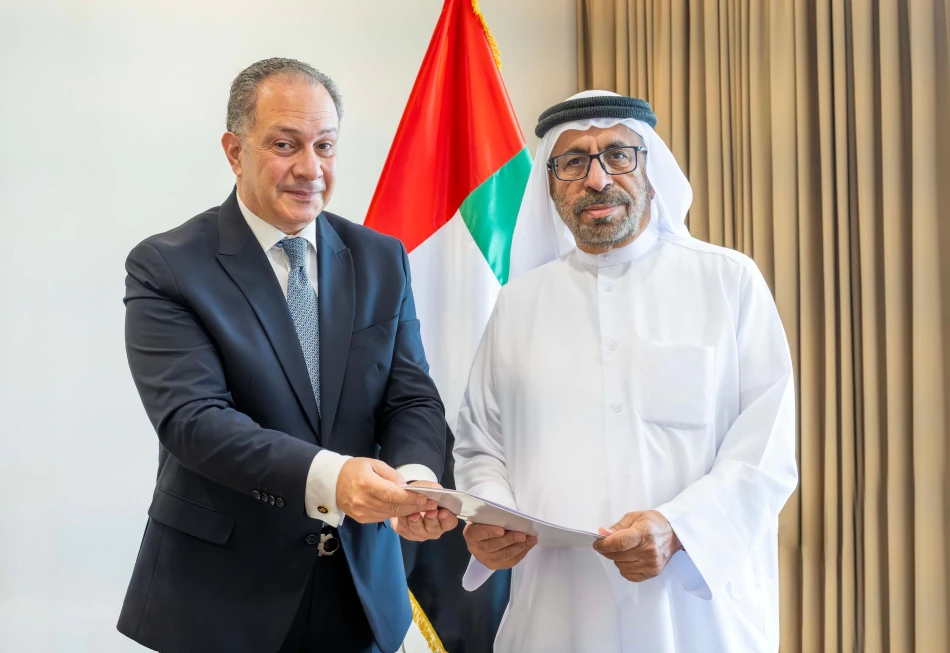
UAE President Receives Written Message from Egyptian Counterpart
UAE-Egypt Diplomatic Ties Strengthen as Leaders Exchange Strategic Communications
The UAE and Egypt are deepening their bilateral relationship through high-level diplomatic exchanges, as President Sheikh Mohammed bin Zayed Al Nahyan received a written message from Egyptian President Abdel Fattah El-Sisi focusing on enhanced cooperation and joint Arab initiatives. The communication signals continued alignment between two of the Middle East's most influential economies at a time of regional transformation.
Strategic Partnership Takes Center Stage
The diplomatic correspondence was delivered during a meeting between UAE Minister of State Khalifa Shaheen Al Marar and Egyptian Ambassador Sherif Issa at the Ministry's headquarters in Abu Dhabi. The exchange centered on bilateral relations and mechanisms for strengthening collective Arab cooperation—a priority for both nations as they navigate an increasingly complex regional landscape.
Beyond Ceremonial Diplomacy
While diplomatic letters between Arab leaders are routine, the timing and emphasis on joint Arab cooperation suggests deeper strategic coordination. Both countries have positioned themselves as moderate voices in Middle Eastern affairs, often working together on regional stability initiatives and economic integration projects.
Economic Implications and Regional Context
The UAE-Egypt partnership has significant economic dimensions that extend beyond diplomatic pleasantries. The UAE has emerged as one of Egypt's largest foreign investors, with substantial commitments in infrastructure, energy, and urban development projects. This relationship has proven mutually beneficial—Egypt offers the UAE access to a large consumer market and strategic geographic positioning, while the UAE provides Egypt with crucial investment capital and economic expertise.
Comparative Regional Dynamics
This diplomatic engagement mirrors similar partnerships across the Gulf, where countries like Saudi Arabia and Qatar have also strengthened ties with Egypt following years of regional realignment. The pattern reflects a broader trend toward economic pragmatism over ideological divisions that characterized much of the previous decade's Middle Eastern politics.
Market and Investment Perspective
For investors and businesses operating in the region, strengthened UAE-Egypt cooperation typically translates into enhanced trade facilitation, joint infrastructure projects, and coordinated regulatory frameworks. The UAE's role as a regional financial hub combined with Egypt's manufacturing capabilities and large domestic market creates compelling opportunities for cross-border investment.
The emphasis on collective Arab cooperation also suggests potential for broader regional economic integration initiatives, which could benefit sectors ranging from logistics and transportation to technology and renewable energy. Such coordination becomes particularly valuable as both countries work to diversify their economies and reduce dependence on traditional revenue sources.
Strategic Timing
The diplomatic exchange comes as both nations face similar challenges: managing economic transformation while maintaining regional influence. Egypt continues its ambitious economic reform program, while the UAE advances its post-oil diversification strategy. Their partnership provides mutual support for these parallel transitions while strengthening their collective regional positioning.
Most Viewed News

 Sara Khaled
Sara Khaled






